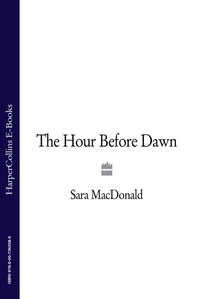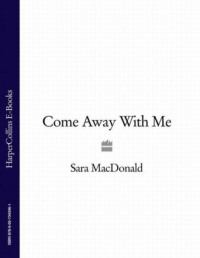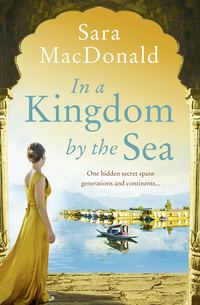
Полная версия
Sea Music
The deliberate loss of a son … Martha could not understand it. As if Fred were really dead. Lady Tremain, old but still bitter, had refused to let Fred go to his father’s funeral.
‘So cruel,’ Anna would hear Martha say to Fred over the years. ‘They are entitled to pretend I do not exist, even that our children do not exist, but not you, their elder and beloved son. I will never understand this. Never. I cannot.’
Anna feels the familiar irritation, even now in the dark, at the flowery dramatic way her mother has of talking. Martha might think of herself as English, she might have incorporated all the small English mannerisms, but the way she uses phrases, the way she uses her hands and gently presses people’s arms is not English. It used to embarrass Anna at school; she much preferred her father’s soft, English voice.
If it hadn’t been for a trust fund set up by Fred’s grandparents for him, something even his parents could not legally deny him, Anna would have had to go to a state school. The thought often makes her go cold. She almost certainly would not be in the position she is today. The judiciary of her age group is still almost entirely made up of people who have been privately educated.
Fiercely loyal to Fred, and eavesdropping as a child, Anna can remember distant aunts and uncles passing guiltily through Cornwall to visit them. Fred sometimes went to London to meet old friends, to Martha’s joy. But he never saw his parents again. The only time he returned to Yorkshire was to bury his mother.
Fred’s brother is dead now too. What did they say to each other on the day of their mother’s funeral? Why did they not become reconciled? Too much bitterness? Betrayal? Fred has never explained.
The anxiety is still with Anna. Will she wake Rudi if she gets out of bed to go to make tea? It is so rare for her not to sleep these days and she is afraid of disturbing him.
She thinks of Lucy. Lucy coming back to London is a very good thing. The cottage can be rented out at the going rate. Barnaby has steadfastly refused to take any rent from Lucy, and Anna is pretty sure she can afford it as she has been working in a hotel.
It would not surprise Anna if Tristan has been living at the cottage at weekends or when he is on leave. Rudi stopped her asking Lucy, pointing out that it would have cost them far more to have her living in London and that his sons were subbed on their visits, so it was important to be fair.
Anna let the matter drop. Rudi was right: she could be hard on Lucy. She shudders at the thought of what some of their friends and colleagues are going through, with children who sponge off their parents for as long as possible. Lucy has never asked for money; she has always been good about getting herself holiday jobs.
The day is lightening. Anna slides down the bed, hoping to sleep again. She cannot put off going down to Cornwall for much longer. She will have to discuss plans for the future with Barnaby. She must think about arranging power of attorney so she can see how Fred and Martha are financially. Barnaby can be bloody awkward when he decides on a course of action.
It would be much easier to have Rudi with her. Barnaby would find it more difficult to argue with her. Surely it is not because Rudi is German that Barnaby suggested she go down on her own? Fred was always too protective. She and Barnaby were always discouraged from discussing anything to do with the war in front of Martha.
It must have been terrible for Martha to have to leave her family at a young age and flee to England, alone. But it was all such a long time ago now. Life has moved on.
She has never thought about having Jewish blood. She is so fair, she has always identified with Germans and Northern Europeans, especially since she started lecturing. God alone knows what sort of throwback she is. Some Scandinavian ancestor Fred had in the family cupboard. She has that rare blonde hair that does not fade but stays a Nordic white. Anna has always been proud of her looks and a little vain, enjoying the attention she attracts.
Lucy is olive-skinned and dark, although she highlights her hair now in thin streaks of blonde. Still gangly and colt-like, Lucy is like Martha, except in height. She has the same creamy coffee skin and shiny blue-black hair that gleams in the light. And like her father, of course. The same eyes, the same way of using her hands.
Claudio was an Italian musician Anna had a short fling with and uncharacteristically got pregnant by. She briefly married him for form’s sake and they parted in a sad but friendly fashion before Lucy was born. The only thing he asked of Anna was that his child carried his name.
Anna has absolutely no idea what happened to him. He just drifted completely out of her life, and it is something Lucy holds against her. ‘Everyone needs to know who they are,’ she will cry dramatically from time to time, but not very seriously.
Barnaby has been Lucy’s father, brother and best friend. Lucy is pragmatic and inclined to make her own happiness. Anna has never felt close to her daughter, and perhaps one day she will try to find Claudio. When she has children of her own.
Anna never intended to have children and Lucy was left with nannies for most of her childhood, or with Martha and Fred. Barnaby would whisk her away in the holidays, when he was on leave. He would take her to France or Italy with a girlfriend and spoil her atrociously.
A surprise baby arrived at an awkward moment in Anna’s career. She was junior counsel and fiercely ambitious. She wanted to be one of the youngest women to take silk. In your thirties you had to make good or you were lost to the young, mostly men, coming up behind you. She became a Queen’s Counsel at thirty-six.
Rudi is snoring gently and Anna is still wide awake. She likes the warmth of his body in the bed next to her. Comforting. Yet this vague but familiar unease still lingers, like a half-heard snatch of conversation blown in at an upstairs window.
Anna’s heart starts to thump painfully again. ‘Oh God,’ she whispers into the coming day. ‘Don’t let me start these wretched nightmares again.’
Barnaby sits on the battered old sofa in the conservatory, experiencing a tangible sense of timelessness, a brief lament for the years that have slid slyly by while his back was turned. If he closes his eyes he is once more that prep schoolboy curled up, dreading the end of the Easter holidays.
He used to crouch in this peachy-smelling glasshouse listening to the birds at twilight while the destructive wind brought in scents of cherry blossom, of wallflowers, and dropped pittsoporum seeds. Early pollen filled his nostrils, making him sniff and sneeze as he lolled there as dusk came, making the trees luminous in the dark.
He would listen to Fred read softly to his mother, his whisky glass perched precariously on the arm of the chair in Martha’s dressing room, which led directly through glass doors from the conservatory.
T. S. Eliot, Edward Thomas, Siegfried Sassoon, Wilfred Owen – sad and brilliant dead poets. All his life snatches of lines have popped into Barnaby’s head, and with those lines come the evocative smells that accompanied the words: sausages, flowers, cordite, dogs. House plants, whisky, dust, his own unwashed feet.
As the rise and fall of his father’s voice soothed Martha’s headache and reached him just outside their room, loneliness would descend out of nowhere. There was a close intenseness between his parents that excluded him without their realising it.
In bed, in the dark, a haunting, animal keening would penetrate the cobwebs of his sleep. A cry, a whisper. Hushed voices. In the morning, loss real and enduring breathed and moved behind quick smiles.
Barnaby could not understand why his happy family life, full of love, did not make him feel as safe and secure as it should have done. Martha and Fred were never indifferent or uncaring. Warmth filled this house. Yet, Barnaby knew that the strength of what he felt was not imagined.
His childhood felt as if he was following a snatch of song down a dusky corridor, only to find when he turned the corner there was only a vibration hovering in the night air, no singer held the trembling notes he heard. The feeling of loss was searing. He was sure that if he could only capture that lingering echo he would recognise the singer and the haunting song they sang. Then his feeling of carrying a weighty sadness might end. Instead of his parents disappearing into shadow, they would remain flesh and blood to him.
Barnaby sensed a truth that was missing from their lives. A bewilderment of childhood where honesty is obscured, where secrets are kept.
Standing, bleak on the station platform as he went back to school, he would wait for Martha to hug him to her again and again. Fred would bend and kiss him. Always. Barnaby would board the train, would hurry down the corridor to the school carriage and jostle to the window to catch sight of them. Each time he would will them to see him, Barnaby Tremain, eight and a half years old. Not just another white-faced little schoolboy in school cap and blazer identical to hundreds of others with their noses pressed to the window on the school train for Paddington.
He knew they loved him, yet before the train even pulled out of the station they would turn once more to one another, their heads close together, walking away from him down the platform. His mother so thin and tiny. His father bent towards her, his left hand hovering protectively behind her back.
They never turned for one last wave although he always waited, breath held with longing, leaning out of the carriage window to capture that last glimpse of them as the train hooted and sidled forward. But they never ever turned to wave.
To them he had already gone. Their concentration was on one another. Barnaby would pull in his head before a master caught him, and collapse into his seat, concentrating on pulling his socks up, on not blubbing.
He always, always wanted to shout to his parents’ disappearing backs, ‘I’m still here. I haven’t gone yet. I’m still here.’
Barnaby, sitting on the long-faded sofa, drinking his own whisky, whispers to himself now, ‘I’m still here.’
For it feels sometimes that the piercing echo of his parents’ secret song still hovers in the flickering shadows and movements of the house. As they reach the end of their lives, it seems to move nearer.
Chapter 7
Berlin
He has not been to the Freie Universität for over a year. He used to lecture regularly at the Institut für Physiologie, then suddenly he tired of the young; wanted to travel.
Ulrich Scheffell rang him out of the blue, asked him to come to the Institut to discuss a European lecture tour he was trying to organise.
‘Why do you ask me at my age?’ he asked.
‘You know very well,’ Ulrich replied. ‘You are one of the most eminent orthopaedic surgeons in Berlin.’
‘I am a retired orthopaedic surgeon.’
‘You are not too old to travel round the world. And you are not too old to lecture. Admit that you are interested.’
‘I will admit to nothing. But I will let you give me lunch.’
‘Hah!’ Ulrich rang off, delighted.
He parks his car with difficulty, thinking: no one walks anywhere any more. Everyone has cars. This is why we are growing as fat as Americans.
He walks into the Business and Environmental Law School. Ulrich asked to meet here, as his grandson, studying European Law, wanted Ulrich to welcome some visiting lecturer.
There are a lot of people milling about and he feels vaguely annoyed at having to hang around with a mass of students waiting for Scheffell. He turns and suddenly sees through a doorway a tall, striking blonde woman in a black gown holding a pile of books. She holds herself a little away from the group of people talking around her.
He stares at her. He knows he has never seen her before, yet she seems familiar to him. He goes on staring with a tight feeling growing in his chest. She has a focused beauty, a sort of detachment he recognises. It is a clever, ambitious face. Shaken, he turns abruptly away.
Scheffell appears suddenly by his side. ‘So sorry to keep you waiting.’ He smiles. ‘She is very beautiful, is she not?’
They push past students eager to get into the lecture hall, and go out into the fresh air. He breathes deeply.
‘Who is she?’ he asks.
‘She is an English barrister. Her name is Anna. She is married to Rudi Gerstein, a friend of my wife. Where did you leave your car?’ Ulrich guides him across the grass towards his office. ‘We will talk, then I will take you out for a good lunch. I would very much like you on my team again. At the very least, I hope you will think about it.’
It is Saturday. He turns the pages of the newspaper slowly. A little pulse beats in his left cheek. It is raining outside, a steady downpour that splatters against the windows of his flat, making the large panes rattle and a cold draught waft through the room.
There. There it is, where he knew it would be: a photograph of the smiling British barrister taken at the FU. He stares down at it; smoothes the creases in the paper. Her face jumps out at him. The piece tells him that she has just given a series of three-day lectures to a group of law students on corporate fraud and the differences in the British and German judicial systems.
The paper congratulates her on her perfect German, her intellect, her beauty and the possibility that she is in line to become a British judge. He looks down at the photograph and the strange feeling returns. Her eyes stare back as if challenging him. He shivers and closes the page. Those eyes … Those eyes remind him of someone else.
He goes to the window. The world out there is deserted. He is not a man accustomed to being lonely. There has always been someone. There has always been a woman.
He crosses to the mirror and stares at his reflection: eyes still the lightest blue, maybe slightly faded, body lean and carefully looked after. Women always think he is a decade younger than he is. He fingers the soft skin under his eyes. Lately he has begun to sleep badly and it is beginning to show.
Since Inga left the flat has seemed bigger, emptier. Of course he was expecting it. The age gap made it inevitable. It was not as if she even lived here permanently. She perched on the edge of his life, the few clothes and possessions she left here tidily placed in wardrobe and drawer so she did not take up too much room. Inga, patiently hovering, hoping for the more he could not give her.
He did not expect her to stay with him as long as she did. Sometimes he took her with him when he travelled. More often he preferred to be on his own.
‘Are you not lonely?’ Scheffell asked him at lunch, full of red wine. ‘I have often wondered why you have never married. Even at your age, I see women look at you.’
‘I am rarely lonely,’ he replied. ‘Nor have I had any urge to marry. This does not mean I do not like women.’
He returns to the window. A squirrel is running through the rain, over the bench and up the tree outside his flat. It looks in at him, waiting. He goes to the kitchen for nuts, opens the sliding doors and puts them on the table.
Inga was still young enough to find someone to marry her and have children. He told her so.
‘Have you ever really loved anyone?’ she asked quietly and bitterly.
He replied, honestly: ‘I am very fond of you, Inga, but you knew from the very beginning that with me there would be no marriage and no children. I never pretended or promised otherwise.’ It seemed as he said these words that he had used them to too many women.
When he was young and, he hoped, as he got older, he gave the women who marched hopefully through his life a good time. But if they wanted to breed or settle or get monotonously domestic they would have to look elsewhere. That each one thought she would be different was not his fault.
He suspects that Inga will be the last woman in his life. He is too old now even to pretend not to be selfish. At half his age, Inga is the woman he was fondest of. He has always been fascinated by the strength of the maternal pull. Inga, he is sure, despite her feelings for him, wanted a last chance of a child.
The squirrel runs down the bird table, along the railings of his balcony and leaps away among the leaves of the tree.
He goes back to the paper and stares down again at the photograph. The room is silent, still – so still that something stirs within him: a remembered, haunting pain that no amount of travelling can entirely banish.
Disturbed, he picks up the phone and dials a number with fingers not entirely steady. A number he has dialled many times. For so many reasons down the years. Hans can find out anything about anybody. Living or dead.
Chapter 8
Fred is feeding the birds with Martha’s breakfast crusts. There is no wind and the morning is mild. Barnaby has fixed a swing bird table on a branch of the old medlar tree, away from the aged interest of Eric, who can still produce a sneaky pounce from the shelter of weeds and bluebells.
Fred notices that the twisted branches of the medlar look as if they might be dying. The wind has caught the leaves and the back branches are too near the Monterey pine. What a pity. What were the three trees that were always planted together in his grandfather’s day? Medlar, mulberry … Damn it, he cannot remember the third.
He moves across the lawn and looks down at the disturbed earth between the roots of the cherry. He and Martha buried Puck under the tree. Lucy and Barnaby have just buried her little tabby here. He smiles to himself. He lost count of the hamsters buried here, until Martha had the idea of placing the catatonic little bodies in the warming oven of the Rayburn as a test. It was alarming how many of the poor creatures had only been hibernating. Barnaby was stricken with remorse, sure that they must have buried most of his hamsters alive.
Fred cannot remember how the tradition of burying all their pets under the trees came about. Perhaps because the dogs always sat here, half in and half out of the sun. He looks out towards the shrubbery for the blackbird with the freak white tail, and tosses a crust into the undergrowth. There is always a danger taming birds with a cat.
It is such a beautiful day and he has no headache. For once his mind is clear. This is the best bit of the day, just before the day begins in earnest. His private communion with the garden. For a few minutes he can pretend … Is it pretend? Or just looking back? Like old men do when they get ancient.
He can pretend that he has woken to find Martha already in the garden, checking her seeds in neat little trays in the old wooden greenhouse. He would walk across the grass with a cup of tea for her and she would look up as excited as a child and point out what each tray held and where in the garden they were going to be planted out.
She was so organised. From rubble and rampant weeds the garden evolved and grew steadily every year. She kept track of things in a little red exercise book, marking carefully where things failed or had been planted in the wrong place. She drew little diagrams for borders of colour and smell; made sure that in winter there were bright berries, shiny leaves and shrubs to look at.
Eventually, he had to employ someone to help her. At first she was reluctant – she was intensely possessive of her garden and her privacy – but Fred knew he must find someone who would not take over but who would understand the sort of garden she wanted to create.
They had two false starts and then Hattie suggested her nephew, a boy of sixteen. Neither Martha nor Fred knew anything about him, and that was just as well or Fred would never have employed him.
Hattie arrived one morning with a surly youth called Adam, who looked as if he had been frogmarched up the drive. Martha, pretending not to notice his scowl, sat him down in the kitchen, made him tea and gave him a huge slice of home-made cake. Then she took him into the garden, pointed out the things she hoped to do and asked for his advice on this and that. What did he think about a pond here? Did he think they could enlarge the terrace, so that it had steps coming down?
Fred, hovering nearby, saw Hattie’s anxious face at the kitchen window. The boy was monosyllabic. Fred wondered what on earth Hattie was palming them off with. He was about to leave to go back to medical school, and was anxious too, but he trusted Hattie.
He returned from London the following weekend to find Martha had a willing and able slave. The scowl had gone. The boy’s white face was beginning to tan and half a pond had been dug.
Adam and Martha worked together twice a week for ten years. They made a spectacular garden, through trial and error, both learning as they went along. The boy had a natural talent and when he was offered a job as under-gardener on an estate on the Helford, Martha made him take it. She never wanted to replace him.
Fred turns away from the bird table and takes a walk round the garden. The old wooden greenhouse fell down a long time ago and nature has reclaimed so much of the garden. There is no telling where the borders once were. Tulips and daffodils spring up everywhere through tufts of long grass and bluebells. The old pond lies choked in the corner, covered in green algae. The heavy Victorian statue of an angel Martha found in a junk shop still stands placidly facing the house, snails nestling in his arms in little clusters. Lichen grows on his face and body like an extra filigree robe.
Much later, Martha told him that Adam had been in constant trouble for his violent, uncontrollable temper. Hattie took him in when her sister washed her hands of him. All he had done at her house, apart from being bored and sullen, was read her gardening magazines. Adam told Martha that he had been beaten constantly by his father. If Hattie had not taken him in, he would have killed him.
Fred thought then how right it was that Martha and Adam had come together. This garden that they made out of nothing had for both of them begun as a replacement activity and became an obsession and an abiding passion.
He supposes he ought to go in. Must not hold Barnaby up. The one thing he did not want to happen has happened. He and Martha have become Barnaby’s burden. So unfair. His head begins to throb. Damn head. Difficult to think sometimes.
Is he sacrificing Barnaby for Martha? No. No. Can’t think like that. Useless. Barnaby would no more think of a home than he would.
He walks slowly across the grass back to the house and the ghost of Martha flits with him. He so much wants to remember the young woman full of life and joy, who could make an ordinary day special. The young woman who built a garden. The young woman who wept in the dark when the shadows came and reached out for him. The woman he held and made love to. Breathed in. Breathed new life into.
He looks up. An old woman is standing at the French windows in her nightgown, waving at him. He could be Fred. He could be the gardener. He could be anyone. Her beautiful face is vacant, contains nothing of their life together. This, Fred thinks, is the hardest thing I have ever had to bear.
The new carer, arriving that morning, makes something of an entrance. She has spiky dark hair, a nose ring, an ethnic sweater and flimsy skirt finished off with a tight leather belt and boots. When Barnaby has finished showing her around, briefed her on Martha and Fred’s routine and left the house in a rush, she makes coffee and takes it into the conservatory.
She stands looking down at Martha as the cup of coffee she holds for her grows cold. The old lady is crying silently and the girl examines her wonderful high cheekbones and sees the tears falling from Martha’s closed eyes. She is disturbed and touched by the smallness of the old lady and the isolation of her senility.








